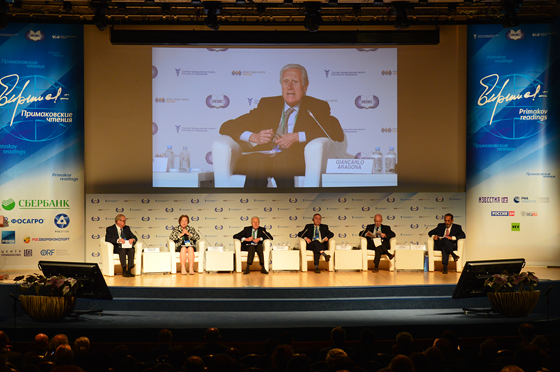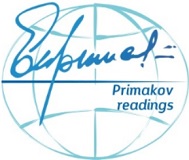
The third session, "New ‘Great Game’ in the Middle East", highlighted the following issues: increasing number of actors in the region (both state and non-state), abandonment of the "bipolar" logic concerning the division of spheres of influence in the economy, development of terrorism as a form of business, non-proliferation of nuclear weapons, and politicization of religion.
According to the expert from Uzbekistan, there are several insurmountable factors hampering the achievement of stability in the Middle East: a crisis of confidence, a paralysis of the institutions of international security, an attempt by different actors to impose their own rules of the game in the conditions of chaos. Import of alien models and values leads to opposition from the local population and its turn towards Islamic fundamentalism. Political will of the United States and Russia is capable of bringing stability to the region and there are several points of convergence, such as common interests in the fight against extremism, as well as counteraction to radicalization of youth.
The representative of India shared this view, stating that it is necessary to work out joint approaches to fighting hotbeds of tension in the region in those areas, where interests of major actors do not conflict. The US side also stressed the presence of numerous actors and the complexity of relationships between them, especially mentioning Russia's ability to find common ground between irreconcilable antagonists. The expert predicted gradual withdrawal of the US from the region.
The representative from Israel noted that the weakening of state and its subjectivity occurred in the region, which has been related to dynamics of the "Arab Spring". In a number of cases, authoritarian regimes were reinforced. The weakening of the state created a vacuum, which brought an opportunity for various regional forces to intervene in conflicts.
Russian participant in the session questioned the existence of the «Great Game» in the Middle East. In his opinion, there is no opposition between two "superpowers", but there are three levels of conflict: local, regional and global. A distinguished feature of Russia's foreign policy – an attempt to build mutually beneficial relations with different parties, while Moscow does not try to oust anybody from the region. However, the US has recently become the main producer of hydrocarbons and pursuing new interests.

No comments